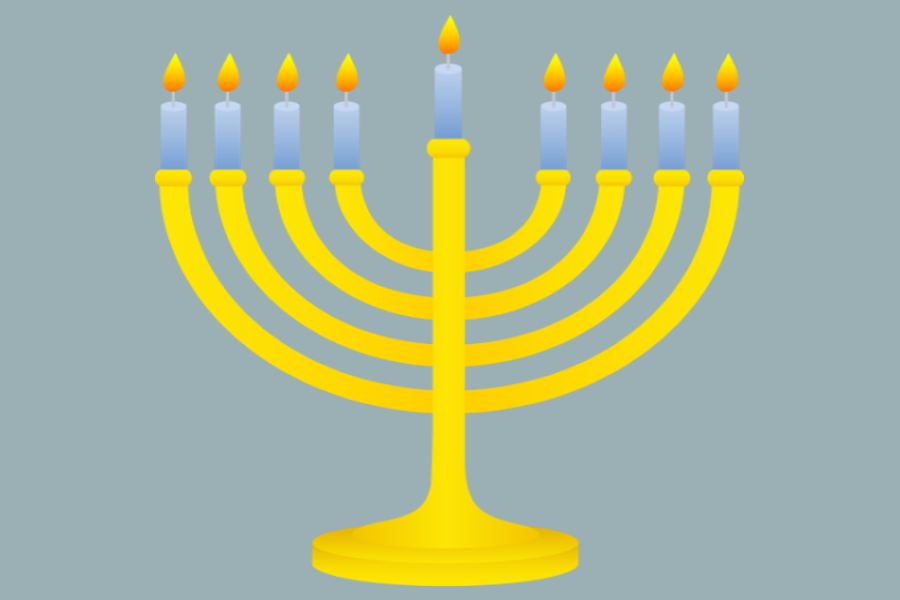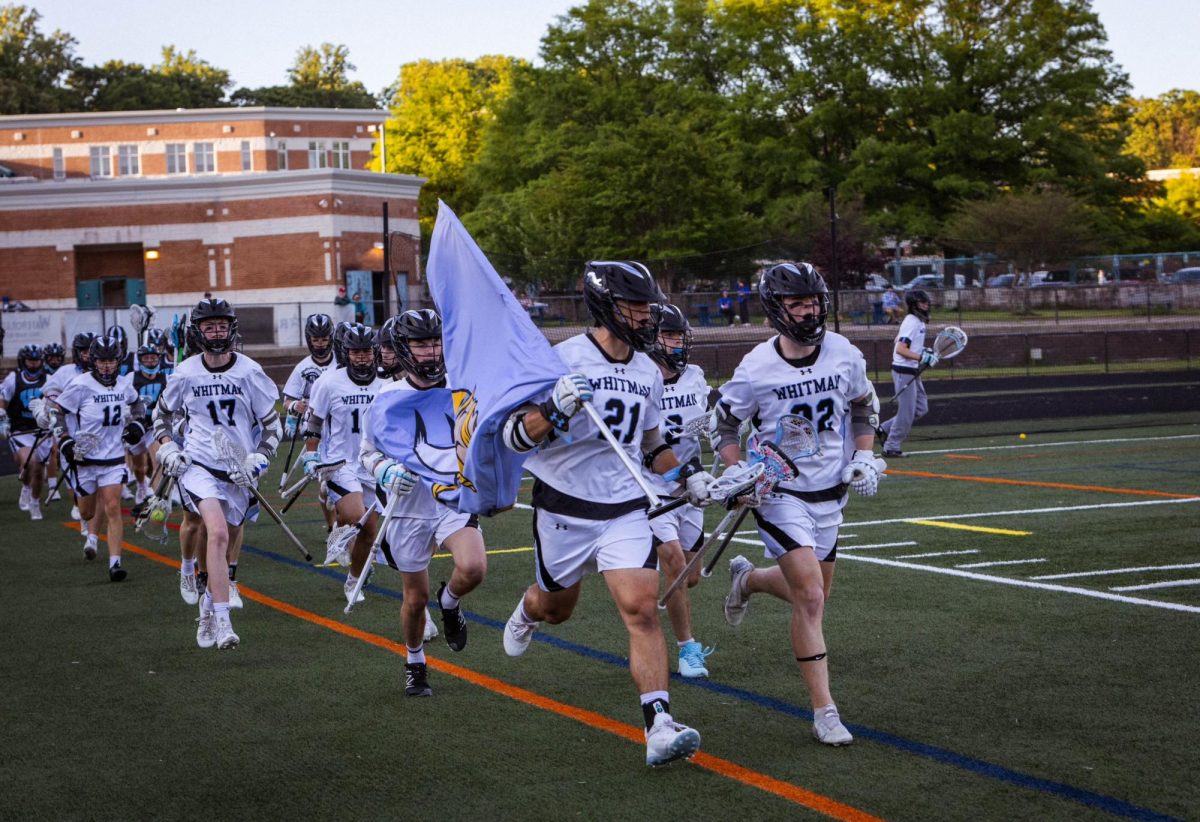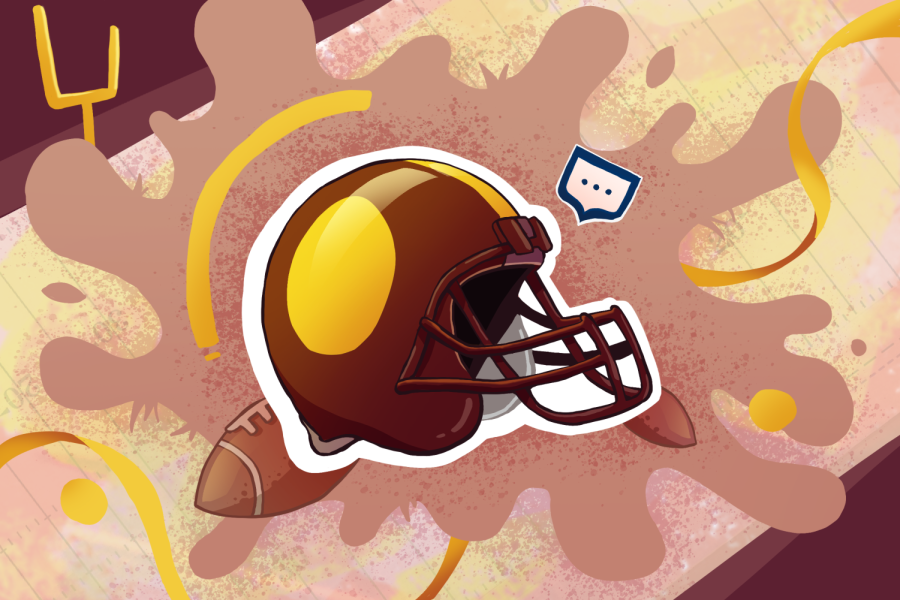An ongoing surge of hatred and ignorance: 21st century anti-Semitism
This past Hanukkah was ripe with instances of anti-Semitism.
February 26, 2021
On the first night of Hanukkah, vandalists spray painted messages calling Jews “devils” and “liars” at a Temple in Iowa. This brazen act of anti-Semitism was not an isolated incident; rather, it represented a growing trend. On the third night of the Jewish holiday, someone ran over a man in Kentucky with a car at a Menorah lighting — thankfully, the victim suffered no significant injuries. On the sixth night, hackers targeted North Shore Hebrew Academy, a Jewish High School in New York; the cyber attack showed clips of Nazis and referred to the school as “North Shore Hebrew Death Camp.”
The normally joyous celebration of Hanukkah became eight days of trepidation, anxiously wondering where the next attack on my people might surface. I dreaded what headline would pop up next on my newsfeed, yet my eyes stay glued to the screen.
Less than a month later, white supremacists stormed the capitol. This insurrection was horrifying and unforgivable. One of the pictures I saw shook me to my core; multiple people wearing shirts saying 6MWE (referring to the six million people killed in the houlcast and saying “six million wasnt enough”) as well as shirts with the words “Camp Auschwitz, work brings freedom.” Seeing these shirts instilled real fear in me, and solidified the that anti-Semitism was a real threat that would never go away.
As a practicing Jew myself, I didn’t know what to feel during these events. Sure, I was scared — it was only natural after seeing so many who wish me dead. Yes, I was distressed and angry. The Jewish community has been relentlessly attacked throughout all of history, even though they currently make up for less than 1% of the population. And, of course, I was frightened of the very real threats of violence against my people. I was even a little confused — why us? Why are people so hung up on disliking Jews? But most of all, I was disappointed in myself; I let these anti-Semitic attacks surprise me.
Anti-Semitism’s ugly history traces far back, way beyond any recent Hannukah assault. People have hated and persecuted Jews since the beginning of Judaism itself.
One of the many reasons that these attacks have become so frequent is because of constant exposure to anti-Semitic stereotypes within pop culture. In order to combat anti-Semitism, we need to recognize that its more common and intertwined in everyday life than we may realize.
Think of iconic villains: Vector in Despicable Me, Mother Gothel in Tangled, Hades in Hercules and even the goblin bankers in Harry Potter. What do each of these characters have in common? They all have big, hooked noses and dark hair — a classic anti-Semitic trope.
I know what you might be thinking: “That’s just what villains look like.”
But who says? Why do villains happen to look like a walking Jewish stereotype? We have been trained by popular culture and media to believe that villains look like Jews, and Jews look like villains. This unconscious bias, associating Jews with evil, unknowingly develops in people’s minds until it becomes almost a logical conclusion. This conflation of Judaism and villainy is just one of the many factors that can lead to such frequent, vile attacks.
These acts of hate — whether they play into the harmful portrayal of Jewish stereotypes or manifest themselves in violent altercations — heighten my pre-existing fear for visibly practicing my religion. I go to a Jewish sleepaway camp and when we go on field trips in public, we have to be cautious of our words to ensure that people don’t know we are Jewish. If I’m in public, I often tuck my hamsa (a middle eastern symbol that represents the hand of God) under my shirt or go without it entirely because I’m afraid of how people might look at me.
In Hebrew school and history classes, I was often told: “If we don’t acknowledge the past it’s bound to happen again.” But anti-Semitism is not just an issue of the past, and it certainly didn’t end with the Holocaust. While keeping the past in mind, it’s time to examine the present, wherein Jews still face violence and prejudice. Because if we don’t, the horrific attacks over the past months will be far from the last.








